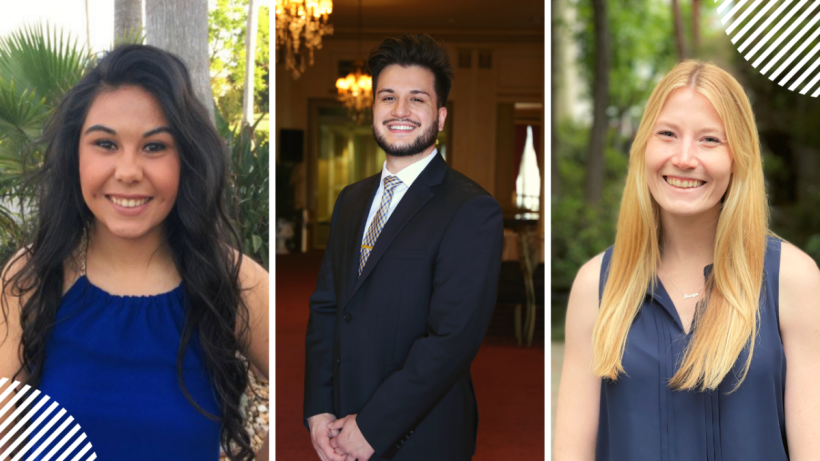SWLAW Blog | Awards & Honors

September 7, 2022
Southwestern Clinical Students Score Victory For Immigrant Rights
On May 25, 2022, Southwestern's own Dulce N. Velasquez, Alex J. Welfringer, and Andres de la Cruz, students of the fall 2021 Ninth Circuit Appellate Litigation Clinic, won a complete and total victory before a three-judge panel of the U.S. Court of Appeals for the Ninth Circuit in Pasadena.
Their client, a young Chinese citizen, came to the United States on a student visa in October 2011 to attend college in Los Angeles. In February 2012, he applied for asylum because, immediately before he left China, the Chinese authorities persecuted him for attending a Christian house church. When the client failed to appear for his asylum interview, the asylum office placed him in removal proceedings based solely on his failure to list any school attendance in the U.S on his asylum application. The asylum office then mailed to the address listed on his asylum application a Notice to Appear ("NTA") for a removal hearing on January 4, 2013, alleging deportability for failing to comply with the conditions of his student visa.
Subsequently, on November 23, 2013, the Immigration Court sent him a notice rescheduling the date of the removal hearing to June 28, 2013. When he failed to appear for the hearing, the Immigration Judge ordered removal in absentia upon finding that the Department of Homeland Security met its burden of proving deportability by "clear, unequivocal, and convincing evidence," even though the only evidence suggesting a student visa violation was the absence of any U.S. school attendance listed on the asylum application.
Years later, he filed a motion to reopen with the Immigration Court, claiming his prior representative, who had helped him apply for asylum, "promised to notify me of my interview date," but that he "never received any letters" from Immigration. The Immigration Judge, however, denied the motion to reopen because the notice of June 28, 2013, removal hearing had been properly sent to the address listed on the asylum application and "was not returned as undeliverable." The Board of Immigration Appeal affirmed the Immigration Judge's decision and upheld the finding of deportability.
Following the oral argument presented by Dulce N. Velasquez in Pasadena on May 12, 2022, before a three-judge panel of the Ninth Circuit, the panel issued its May 25, 2022 decision in Liang v. Garland, 2022 WL 1658225 (9th Cir. 2022). The panel held that "the government failed to carry its heavy burden of proving that Liang was removable as charged by clear, unequivocal, and convincing evidence."
The panel rejected the government's reliance on Liang's failure to list his U.S. school attendance on his asylum application because "in the absence of other substantive evidence, the government cannot rely solely upon the adverse inference drawn from silence to satisfy its burden of proof."
Although the Ninth Circuit's standard of review of a removal order is highly deferential in favor of the government, the panel held that "[n]o reasonable adjudicator could find that the government carried its burden to establish removability when it relied solely on a single omission from an application designed for an entirely different purpose."
In refusing the government's request to send the case back to the Board of Immigration Appeals for another try, the panel held that "remand would not be proper here" where "t]he government had both an ample opportunity to build the record and a full opportunity to litigate the issue but failed to compile sufficient evidence to prove Liang's removability."
The panel, therefore, concluded that "[u]nder these circumstances, the government's request for a remand amounts to little more than an unwarranted request for another bite at the apple—and a useless one, because it is clear that the record is insufficient to meet the government's burden."
The students also worked tirelessly to help their client secure immigration documents allowing him to stay in the United States, pending the Ninth Circuit's decision. This hard work was rewarded when the client finally received his work authorization card precisely one week after the oral argument.